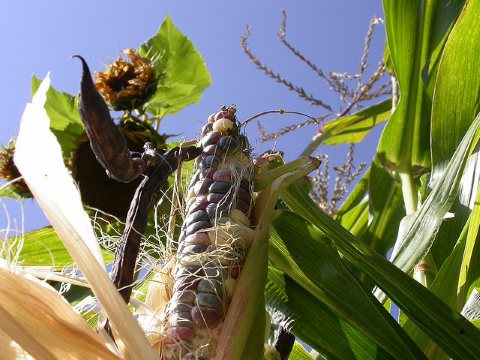 Governments must shift subsidies and research funding from agro-industrial monoculture to small farmers using 'agroecological' methods, according to the UN's Special Rapporteur on the Right to Food. And as Nafeez Ahmed notes, her call coincides with a new agroecology initiative within the UN's Food and Agriculture Organisation.
Governments must shift subsidies and research funding from agro-industrial monoculture to small farmers using 'agroecological' methods, according to the UN's Special Rapporteur on the Right to Food. And as Nafeez Ahmed notes, her call coincides with a new agroecology initiative within the UN's Food and Agriculture Organisation.
Modern industrial agricultural methods can no longer feed the world, due to the impacts of overlapping environmental and ecological crises linked to land, water and resource availability.
The stark warning comes from the new United Nations Special Rapporteur on the Right to Food, Prof Hilal Elver, In her first public speech since being appointed in June
"Food policies which do not address the root causes of world hunger would be bound to fail", she told a packed audience in Amsterdam.
One billion people globally are hungry, she declared, before calling on governments to support a transition to "agricultural democracy" which would empower rural small farmers.























